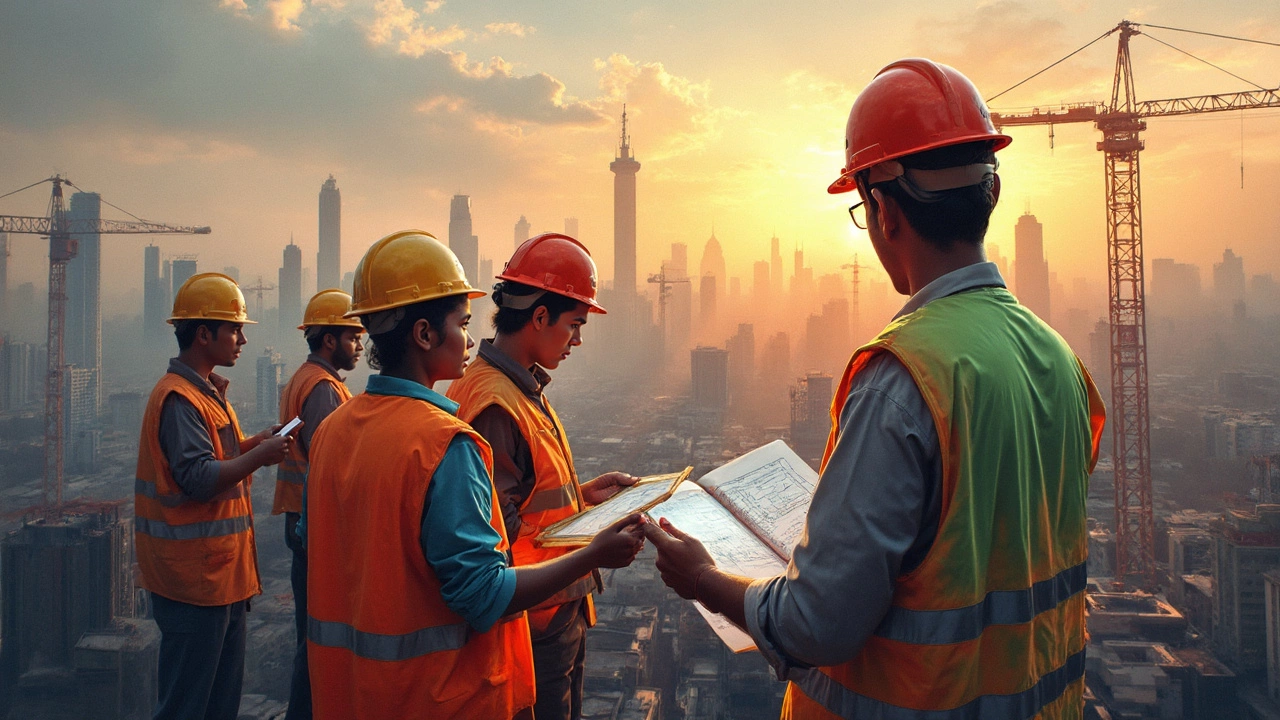Commercial Contractors: What They Do, How to Choose, and What You Need to Know
When you hear commercial contractors, professionals who build or renovate offices, retail spaces, warehouses, and other business properties. Also known as general contractors, they don’t just lay bricks—they manage permits, coordinate electricians and plumbers, handle inspections, and keep projects on budget and schedule. Unlike residential builders who focus on homes, commercial contractors work with stricter codes, heavier materials, and tighter deadlines. A single mistake in a retail center can shut down dozens of businesses. That’s why their work isn’t just about skill—it’s about systems.
These contractors don’t work alone. They rely on a network of subcontractors, from structural engineers to HVAC specialists. Their biggest challenge? Balancing speed with safety. Many commercial projects run on tight windows—think retail spaces needing to open before the holiday season. That pressure leads to corners being cut, which is why you need to verify their contractor licensing, official state or local certification proving they meet legal and safety standards. A license isn’t just paperwork; it’s proof they’ve passed background checks, carry insurance, and know local building codes. Skip this step, and you risk fines, delays, or even structural failure.
Another key factor is commercial construction, the process of building non-residential structures using materials like steel, concrete, and pre-engineered systems. These projects often use Type C or Type 5 construction methods, which are designed for fire resistance and heavy use. Unlike a house, a warehouse might need tilt-up concrete walls or steel frames that can support heavy equipment. The materials, permits, and inspections are all different. That’s why you can’t just hire a handyman who builds decks—you need someone who’s done this before.
And then there’s the money. Commercial construction costs more per square foot than residential. Why? More labor, heavier materials, longer permitting, and higher insurance. A 10,000 sq ft office building isn’t just ten homes put together—it’s a complex project with zoning rules, ADA compliance, fire suppression systems, and electrical loads that residential builders rarely handle. That’s why reviewing a contractor’s past projects matters. Ask for photos of similar builds. Check if they’ve worked on retail spaces, medical offices, or industrial sites. Look for consistency in finish quality and timeliness.
You’ll also find that many commercial contractors specialize. Some focus on medical facilities, others on warehouses or restaurants. Each has different needs. A restaurant needs grease traps, ventilation, and commercial-grade plumbing. A clinic needs soundproofing, accessible layouts, and strict sanitation standards. Don’t assume one contractor can handle everything. Find someone who’s built what you’re building.
And if you’re thinking about doing it yourself? Don’t. Even small commercial projects require permits, inspections, and compliance with the International Building Code. One misstep can cost you thousands in corrections—or worse, shut you down legally. That’s why the best commercial contractors don’t just build—they protect your investment.
Below, you’ll find real guides on how to pick the right one, what to watch for in contracts, how costs break down, and why some projects go wrong—even when the contractor seems qualified. These aren’t theory pieces. They’re based on actual projects, mistakes made, and lessons learned by people who’ve been through it.
What Type of Construction Companies Make the Most Money?
What kind of construction companies rake in the biggest profits? This article looks at the sectors and specializations where construction businesses really cash in. We'll dig into real examples, show you what sets the top earners apart, and point out traps new companies should avoid. You'll get practical tips on boosting profits, whether your company handles skyscrapers, roads, or high-end homes. If you're thinking about starting or growing a construction business, this article is a must-read.
Learn more...